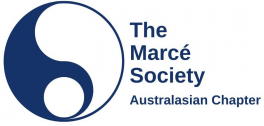Childhood Sexual Abuse And Its Association With Postpartum Depression
Anne Buist, ARMC, Repat Campus, Locked Bag 1, West Heidelberg 3081
Helen Janson, Mercy Hospital for Women, Clarendon St, East Melbourne 3002
Increasing interest in the outcomes of the children of the mentally ill have resulted in a number of long term studies of women and their children. Many of these, researching depression, have concluded that postpartum depression has a "medium to large effect" on mother infant interaction (Tatano Beck 1995) and a small but significant effect on cognitive and emotional development on the child (Tatano Beck 1998). What many of these studies do not consider is what impact does the depression have, versus the often associated risk factors, such as socioeconomic disadvantage, poor parenting models and childhood abuse.
In our study (in press, Childhood Sexual Abuse & Neglect), women with a history of sexual abuse reviewed at three years postpartum, had higher depression and anxiety scores, with greater life stresses than women without an abuse history. Their partners rated the children as being more disturbed, and these mothers had not improved as much over time as depressed mothers from non-abusive backgrounds. There were no differences on child cognitive scores. Though this was a small study, it highlights a particular at risk group which needs added intervention in order to minimise long term adverse outcomes.





